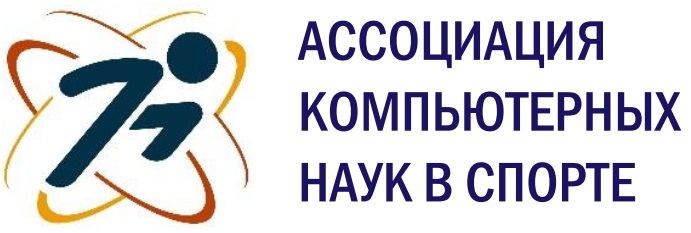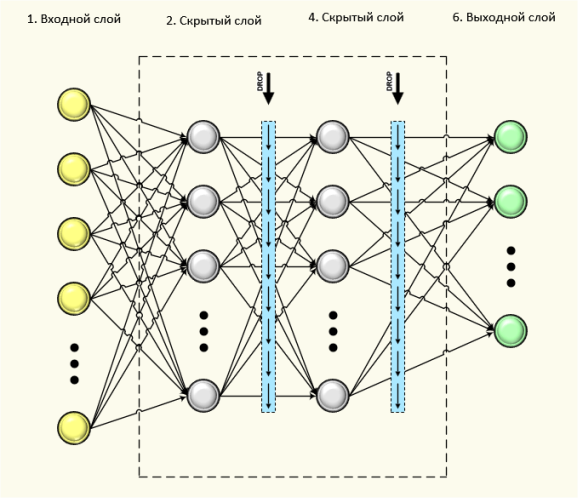Moscow, Russian Federation
Moscow, Russian Federation
Moskva, Moscow, Russian Federation
Russian Federation
VAK Russia 1.2.2
VAK Russia 5.8.5
VAK Russia 2.2.12
UDC 004.89
UDC 004.032.26
UDC 355.233.22
CSCSTI 77.00
CSCSTI 20.00
Russian Classification of Professions by Education 02.00.00
Russian Classification of Professions by Education 06.00.00
Russian Classification of Professions by Education 09.00.00
Russian Classification of Professions by Education 30.05.01
Russian Library and Bibliographic Classification 3
Russian Library and Bibliographic Classification 75
Russian Trade and Bibliographic Classification 5
Russian Trade and Bibliographic Classification 2352
BISAC COM014000 Computer Science
BISAC COM017000 Cybernetics
BISAC COM025000 Expert Systems
BISAC COM004000 Intelligence (AI) & Semantics
BISAC BIO016000 Sports
BISAC SPO043000 Swimming & Diving
Relevance. For an athlete, in addition to effective training, it is important to assess his functional state and readiness to show the best result when performing at competitions. At the same time, the assessment of the athlete's condition should be fast, low-cost and without distraction from the competitive process. Goal. Development of an innovative software package using deep learning methods and NLP (Natural Language Processing) to accurately predict the athletic performance of swimmers. The package is designed to support effective decisions on the selection of the strongest athletes for participation in team and individual swims based on the analysis of their functional states through automated conscious dialogue and taking into account key hematological indicators. Methods. Real data on athletes of the Russian national swimming team were used to train the system - a total of 100 cases were analyzed for eight key hematological parameters affecting athletic performance. To create the package, deep machine learning neural networks were used based on the Keras open source library and the Python language. Results: The developed complex includes three main modules: module "Training": creating a language model based on the Keras and Python libraries; module "Chat + Forecast": supporting a meaningful dialogue with the user (trainer / doctor / athlete) regarding the current health status and level of readiness; module "Test-Forecast": mass testing of the effectiveness of the developed model on specific examples. The accuracy of the model reached 90% during training based on the analysis of the model training history. Real testing confirmed the effectiveness of the approach, showing the coincidence of the forecast with the results in 87% of cases. Conclusion. The developed complex provides a quick assessment of the athlete's condition, minimizing costs and allowing for the effective selection of participants for various competitions. Possibilities for increasing accuracy are preserved by expanding the data set. A chatbot with natural language queries is used to obtain various data on the subject area.
software package, artificial neural network, machine learning, hematological parameters, swimmers, competitions, chatbot, Keras, language QA model, classification
1. Nekhvyadovich A.I., Budko A.N. Evaluation of the effectiveness of the training process of athletes based on the variability of blood parameters: Practical guide. Minsk: BSUPC, 2019. 40 p. (in Russ.)
2. Trischenkova S.N., Ekimovskikh A.V., Egorov G.E. Integral hematological parameters in athletes. [Electronic resource]. (in Russ.) URL: https://www.sportmedicine.ru/medforsport-2011-papers/trischenkova.php (Accessed: 03.27.2025).
3. Suzdalnitsky R.S., Levando V.A. Immunological aspects of human sports activity. Theory and practice of physical education, 1998, (10), pp.43-46. (in Russ.)
4. Dautova A.Z., Yanysheva G.G., Yakubov R.Yu., Nazarenko A.S., Zverev A.A.. Relationship of hematological and biochemical blood parameters in athletes of different age groups. Science and sport: modern trends, 2022,10(3), pp. 14-21. DOI: https://doi.org/10.36028/2308-8826-2022-10-3-14-21
5. Boykov V. L. Comprehensive characteristics of the autonomous regulation of heart rate, hematological and biochemical profile in highly qualified swimmers: author's abstract. for a dissertation. candidate of biological sciences: 03.03.01 - Physiology, Yaroslavl, 2021, 21 p. (in Russ.)
6. Ryazantsev A.I., Safonova S.N., Golomedov M.R. Hematological markers of the state of functional systems of highly qualified swimmers in conditions of mid-mountain training. Physical Education. Sport. Health, 2024, (1), pp. 82-89. [Electronic resource]. URL: https://www.sportmedicine.ru/medforsport-2011-papers/trischenkova.php (Accessed: 03.27.2025).
7. Anshik. AI for Healthcare: Keras and TensorFlow. In AI and Machine Learning for Healthcare. 2021. 381 pages. [Electronic resource]. (in Russ.) URL: https//doi.org/10.1007/978-1-4842-7086-8 (Accessed: 03.27.2025).
8. Elbon Chris. Machine Learning with Python. Recipe Collection: Translated from English. SPb.: BHV-Petersburg, 2019, 384 p.
9. Machine Learning with Python Tutorial. [Electronic resource]. URL: https://www.geeksforgeeks.org/machine-learning-with-python/ (Accessed: 15.03.2025).
10. The official home of the Python Programming Language. [Electronic resource]. URL: https://www.python.org/ (Accessed: 15.03.2025).
11. Best Python libraries for Machine Learning. [Electronic resource]. URL: https://www.geeksforgeeks.org/best-python-libraries-for-machine-learning/ (Accessed: 15.03.2025).
12. The Best Python Libraries for Machine Learning /[Electronic resource]. URL: https://thecode.media/luchshie-python-biblioteki-dlya-mashinnogo-obucheniya/ (Accessed: 03.15.2025).
13. 8 Best Natural Language Processing Libraries for Python (NLP). [Electronic resource]. URL: https://pythonist.ru/8-luchshih-bibliotek-obrabotki-estestvennogo-yazyka-dlya-python-nlp/ (Accessed: 15.03.2025).
14. Keras. Deep Learning for humans [Electronic resource]. URL: https://keras.io/ (Accessed: 27.03.2025).
15. Keras: deep learning library in Python. [Electronic resource]. URL: https://ru-keras.com/home/ (Accessed: 27.03.2025).
16. Service manual. Operating principles. Description of electronic equipment Chemwell-T, [Electronic resource]. URL: https://www.manualslib.com/manual/1863455/Awareness-Technology-Chemwell-T-4600-Series.html?page=38#manual (Accessed: 15.03.2025).
17. Td-lab Company, dealer of Awareness Technology products in the Russian Federation, [Electronic resource]. URL: https://td-lab.ru/product/avtomaticheskij-bioximicheskij-analizator-chemwell-t (Accessed: 15.03.2025).
18. World Aquatics (FINA) Points Table [Electronic resource]. URL: https://russwimming.ru/fina-points (Accessed: 27.02.2025).
19. Bolotov A.A., Barchukov V.G., Galuzin A.S., Ten A.M., Onopchenko O.V. Using hematological indicators to forecast the results of swimming competitions based on probabilistic assessments. Clinical bulletin of the A. I. Burnazyan Federal Medical and Biomedical Center, 2023, (4), pp. 10-18. (in Russ.) DOI: https://doi.org/10.33266/2782-6430-2023-4-10-18
20. Bolotov A.A., Barchukov V.G. Galuzin A.S., Ten A.M., Onopchenko O.V. Forecasting the results of swimming competitions based on hematological indicators. Russian journal of information technologies in sport. Collection of abstracts of the VII All-Russian with international participation scientific and practical conference “Day of sports informatics” December 4-5, 2023, pp.31-34. (in Russ.) DOI: https://doi.org/10.62105/2949-6349-2024-1-S1-31-34.















